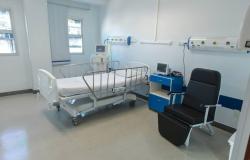The Rio Grande do Sul Research Support Foundation (Fapergs), linked to the Secretariat of Innovation, Science and Technology (Sict), launched, this Tuesday (2/4), the Institutional Program for Scientific Initiation and Technological and Innovation Initiation (Probic/Probiti), with a total investment of R$ 13.4 million. Aimed at undergraduate students, the scholarships will have a value of R$700 per month, effective from September 2, 2024 and with a maximum duration of 12 months.
The objective of the program is to provide the qualification of the State’s human resources, promoting, from graduation, an interest in scientific research, technological development and innovation. In addition to promoting student engagement in the scientific research process, contributing to the training of highly qualified professionals, the scholarships complement the student’s academic training, prioritizing the exchange of knowledge with professors.
The forecast is that 1,600 undergraduate students will benefit. The resources aim to meet the demands of Scientific, Technological and Innovation Institutions (ICTs) interested in obtaining quotas of scholarships for undergraduate students.
Registrations
Universities will be able to submit proposals from Wednesday (3/4) until May 22, 2024, through the SigFapergsaccording to the requirements of the program and the documentation required in the system.
More information can be found on the website www.fapergs.rs.gov.br or by email at [email protected]
Text: Ascom Fapergs
Edition: Secom
Tags: State invest R13 .4 million scientific technological initiation scholarships






